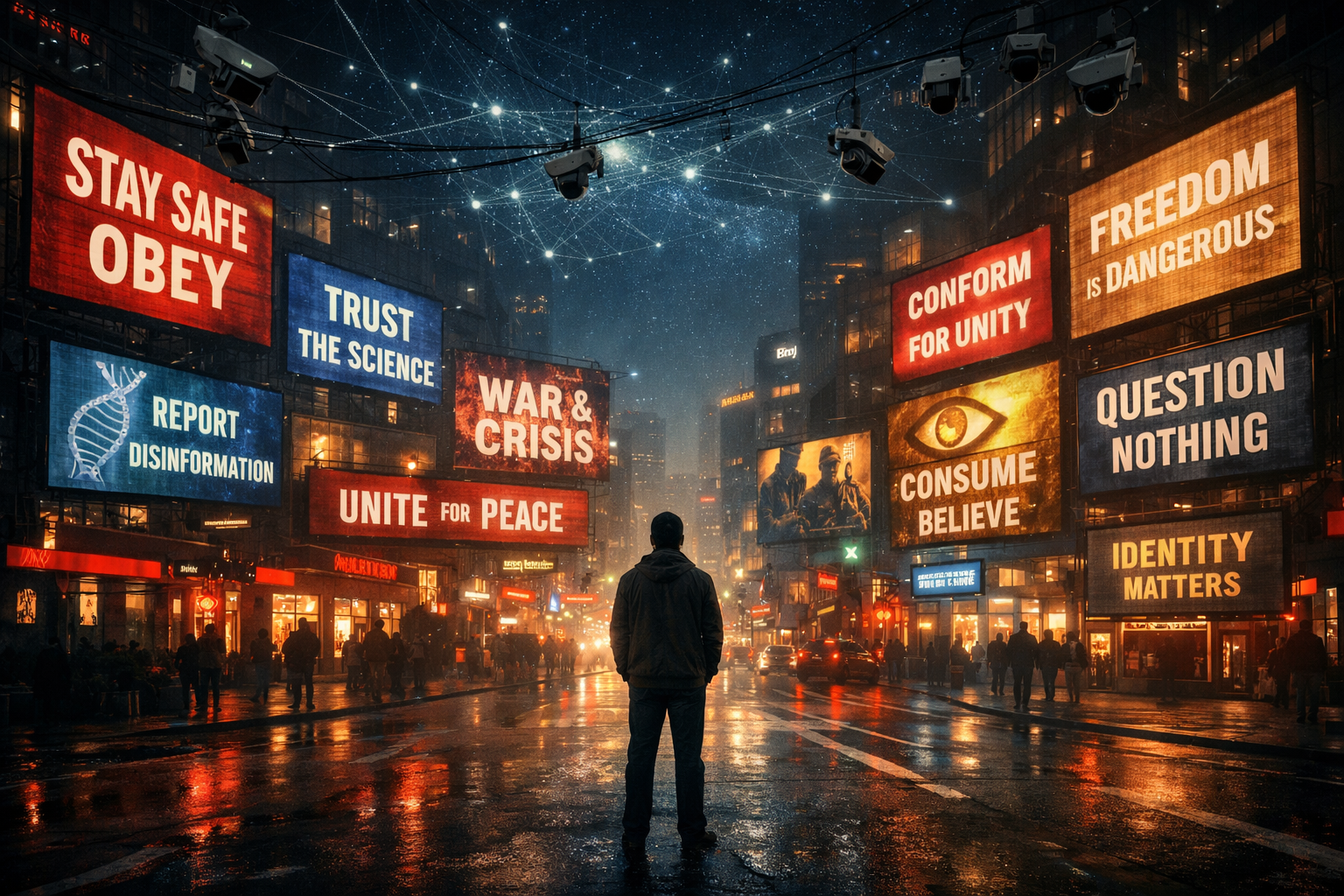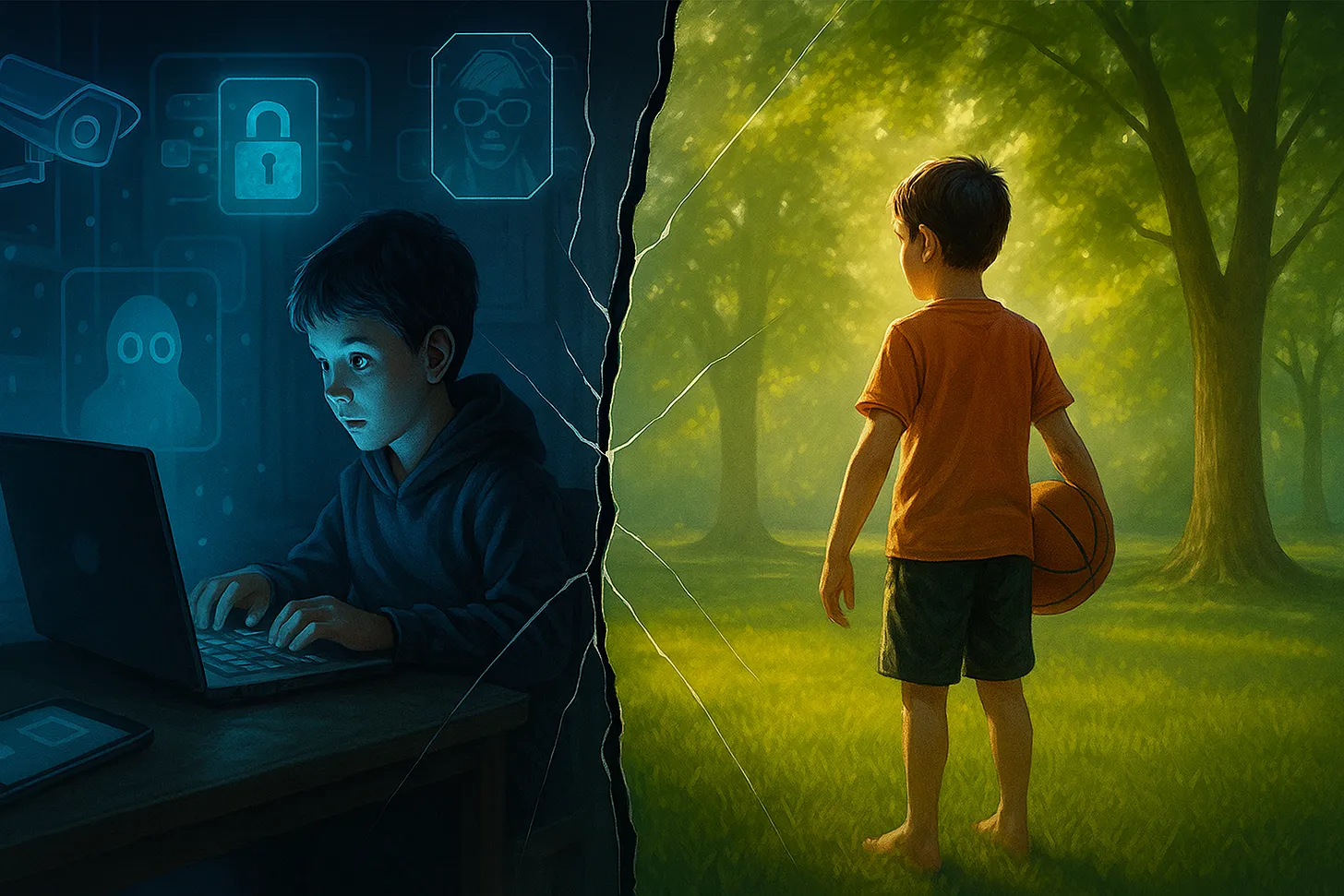We are no longer merely debating politics, censorship, or technology. The deeper conflict concerns reality itself — who defines it and how its boundaries are enforced. Different societies justify it in different ways, yet the pattern is consistent: shape perception and behavior follows. When the story of the world is curated, the people within it can be guided. What follows is not a comparison of nations or ideologies, but an inquiry into influence, belief, and the growing necessity of discernment.
Tag: surveillance
From Safety Nets to Digital Traps: The Harvesting of Childhood
We are lulled into thinking that more surveillance, more devices, and more virtual safety nets will protect our children. Yet beneath the polished slogans and technological promises lies a darker truth: reality itself is being eroded, traded away for simulations and dashboards, and formative years are being harvested by algorithms. What is sold as safety may, in fact, be the very thing that leaves the next generation less resilient, less embodied, and less free.
Through the Overton Window: Flock, Funding, and the Fabric of Surveillance
The age we’re living in feels increasingly curated, controlled, and surveilled. From cameras on poles to the algorithms in our pockets, the quiet pressure of ambient anxiety seeps into daily life. The potholes remain, but the panopticon grows. This is not just about technology, but about sovereignty — about remembering what is real, and reclaiming the ground beneath our own feet.
“Big” Fixes: When the Solution Is the Problem
This conversation cuts through surface-level discourse to expose the deeper currents shaping our collective reality. It challenges the dominant narratives of climate, energy, and technological “solutions” — not with counter-narratives, but with discernment, inquiry, and a refusal to accept manufactured crises as truth. In a world gripped by illusion and driven by commodified fear, what emerges here is a call to reclaim clarity, sovereignty, and alignment with what is natural, real, and enduring.
Empire with a Smile: The Politics of Illusion
We live in an era where illusion is branded as truth, spectacle mistaken for substance, and leadership filtered through algorithms and carefully manicured personas. This conversation is a nudge beneath the surface — not to claim certainty, but to illuminate the scaffolding behind the theater of politics and power. What lies beneath the polished speeches and symbolic milestones may not be comfortable to look at, but it’s where the deeper understanding begins.




